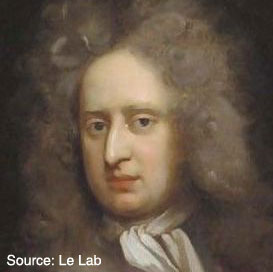In Celebration of the Human Voice - The Essential Musical Instrument
Home | Doo Wop | Barbershop | World | Contemporary | Christian | Vocal Jazz | Choral | Christmas | Instructional | Arrangements
Classical | Opera | Musicals | Personality | Young Singers | Disney | Videos | Songs | The Artists

Thomas Morley Biography

Click Here for Sheet Music and Songbook Vocal Arrangements
The composer, organist, and theorist Thomas Morley (ca. 1557-ca. 1602) was the chief English exponent of the Italian madrigal tradition. Thomas Morley was born about 1557 and, sometime between 1602 and 1608, died after a long illness. During his early years he studied composition with William Byrd and organ under Sebastian Westcote. In 1588 Morley received a bachelor of music degree from Oxford and took the position of organist at St. Giles, Cripplegate. In 1591 he became organist at St. Paul's, joining the Chapel Royal the following year. About this time Morley married; he and his wife, Susan, had three children between 1596 and 1600. During this period Morley, like Byrd a Roman Catholic, encountered trouble as a recusant. Charles Paget, an agent, had intercepted letters which held enough incriminating evidence for him to have had Morley hanged. He repented so abjectly, however, that Paget let him off. In 1598 Morley applied successfully for the license to print music. But by then his health had begun to fail, and the new outlet proved more burdensome than productive. He had already published his Canzonets to Three Voices (1593), Madrigals to Four Voices (1594), Ballets to Five Voices, and Canzonets to Two Voices (both 1595), and his Canzonets ... Selected out of ... Italian Authors, Canzonets to Five and Six Voices, and his treatise A Plain and Easy Introduction to Practical Music (all 1597). Between 1598 and 1601 he produced and published a new collection each year and also reedited a great many of his earlier publications. He also left a great quantity of unpublished music, including ten motets, four services, five anthems, keyboard music, and viol consorts. Morley has been called the father of the English madrigal. He was the earliest and the chief figure in the wholesale transplantation of the Italian madrigal tradition to England, and the quick assimilation of Italian styles and forms into a burgeoning English tradition was largely of his doing. Single-handedly he translated the Italian canzonet into a native form, the English short ayre, in his Canzonets of 1593 and 1595. In the latter collection he also included nine two-part instrumental fantasias, which, though bearing fanciful Italian titles, are marvelous examples of a new and sprightly English counterpoint. In these canzonets, as in the Madrigals to Four Voices and Ballets to Five Voices, Morley obviously patterned his works after Italian models, even paraphrasing a few, but he surpassed these models in harmonic variety and tonal sophistication. Morley's sacred music is more deeply serious and moving than the canzonets and madrigals. But these sacred works show no greater contrapuntal skill, no more elegant finish in the new English style than the hundredodd secular pieces he had composed on models straight from late Renaissance Italy. |
Select a Category |
Want to Sing? - Find a Chorus Near You
List of Choruses by State | List of Choruses by City
